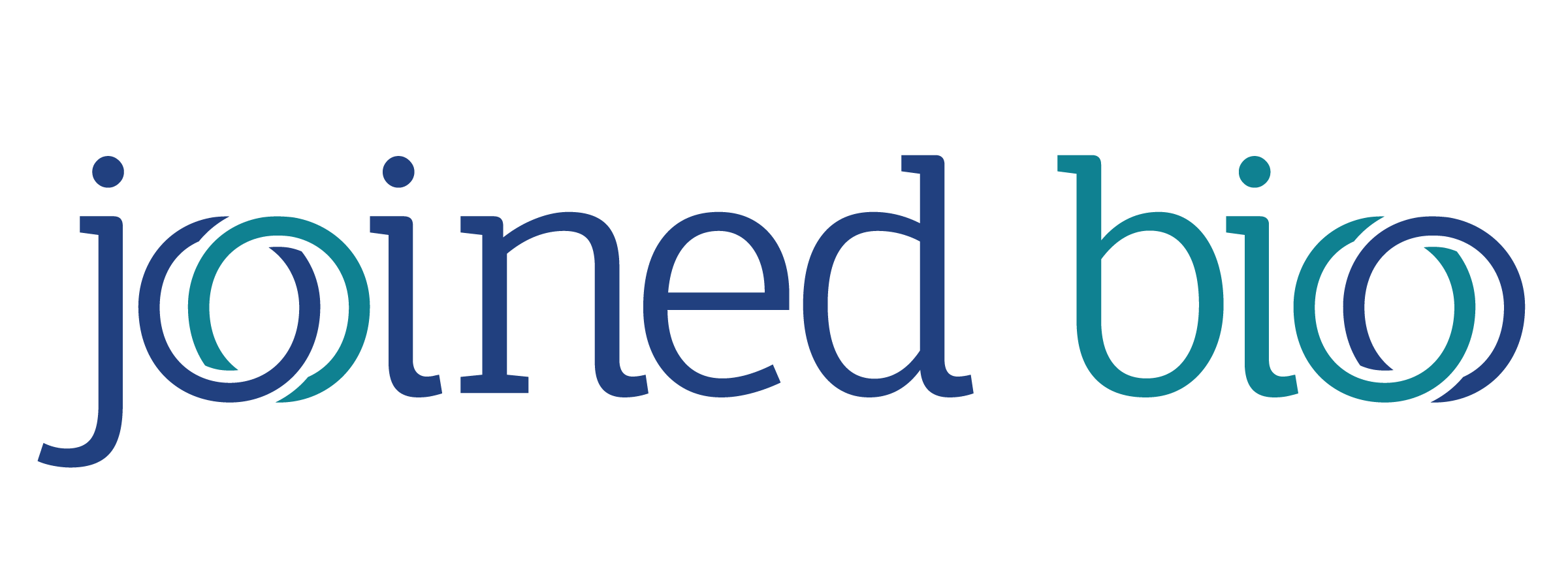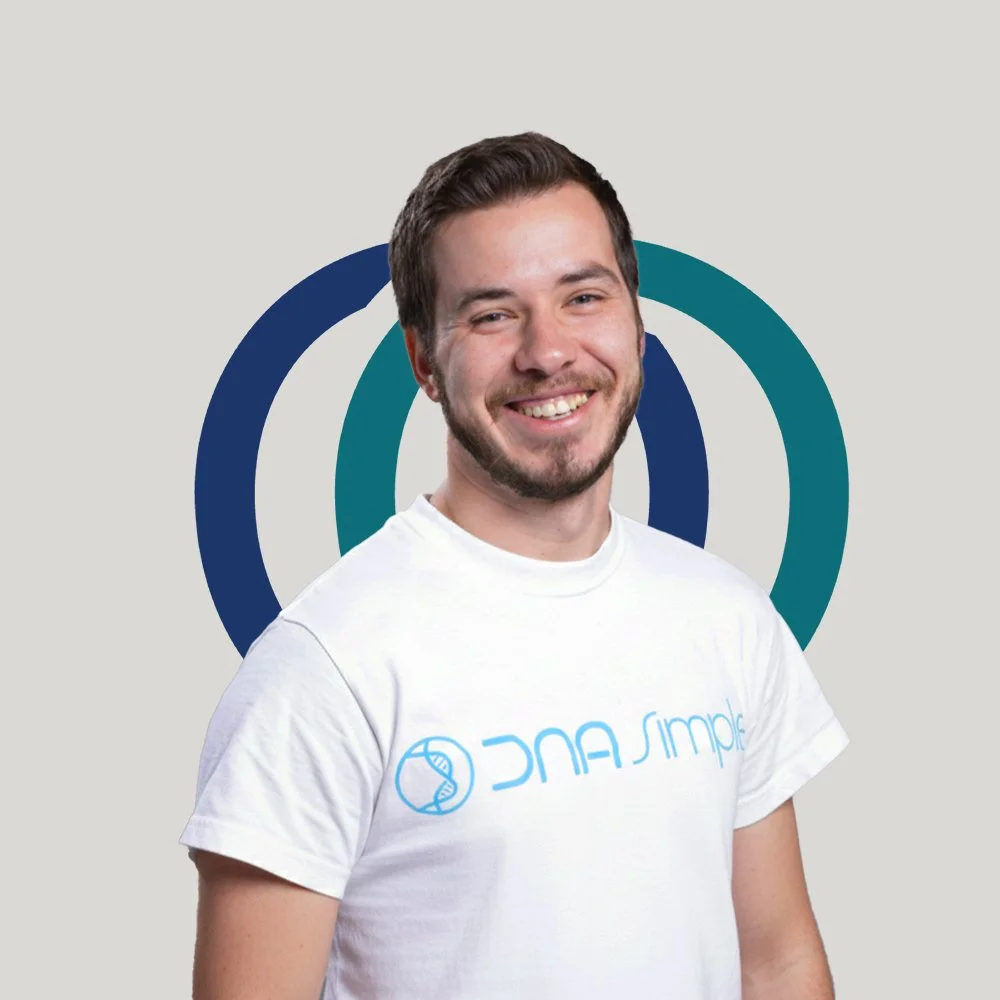From
to
This is our evolution story: Joining forces with Joined Bio
DNAsimple was founded with a simple mission: make it easy for people to participate in genetic research while being fairly compensated. Over time, we’ve built a community of more than 180,000 participants committed to advancing medical science.
Now we’re taking the next step by joining forces with Joined Bio, a platform that shares our mission and elevates it with even stronger technology, broader research capabilities, and streamlined participant experiences. Together, we’re making it faster and easier than ever for people to contribute to groundbreaking discoveries.
Hear from our CEO…
“I chose to partner with Joined Bio because they share DNAsimple’s core values: putting participants first, ensuring fair compensation, safeguarding privacy, and making research accessible to everyone. With Joined Bio’s advanced capabilities, we can now serve our community even better.”
— Dr. Olivier Noel, Founder & CEO, DNAsimple
What’s new with this partnership
Discover more opportunities, better rewards, and smarter matching, all while keeping participation simple.
Higher rewards - Earn up to $250 per study, a major increase from before.
Expanded study options - Go beyond saliva: blood, urine, medical records, surveys, and more.
AI-smart matching – Get matched to the right studies faster based on your unique profile.
At-home convenience – Licensed clinicians come to you for hassle-free collection.
Greater impact – Contribute to diverse research areas, from autoimmune to rare diseases.
What stays the same
Everything you already trust about DNAsimple remains at the heart of Joined Bio.
Your choice – You decide which studies to join, every time.
Your privacy – HIPAA-grade protection and secure,
de-identified data.Your community – The same mission of participant
empowerment you believe in.Your team & values – The same people you know,
now with enhanced tools.
Meet the Joined Bio team
Jill Mullan
Founder & Co-CEO
Jill is co-CEO of Joined Bio, bringing her engineering mindset and business acumen to revolutionize patient marketplaces. Previously, as co-founder and COO of iSpecimen, she orchestrated everything from supply partnerships to biospecimen operations to marketing to corporate strategy, while keeping a watchful eye on privacy and security (no small feat in healthcare!).
Her 25+ year journey also includes launching groundbreaking products at Avid Technology, where she has responsibility for a cool $400M product line, and running product marketing and communications as a founding team member of Storigen Systems. She holds a BS in Electrical Engineering from Cornell and an MBA from Stanford. Outside of work, she's most passionate about health and baking, and can make all sorts of whole grain foods that actually taste good.
Christopher Ianelli
Founder & Co-CEO
Chris is co-CEO of Joined Bio, where he's helping to build the future of patient access. Previously, he founded iSpecimen, transforming how researchers access biospecimens and driving innovation in precision medicine. As a former Managing Director at Leerink Partners, he launched several successful healthcare ventures, including Humedica, which was acquired by UnitedHealth Group.
He holds an MD/PhD in Immunology from Tufts and completed his residency as Chief Resident at Brigham & Women's Hospital and Harvard Medical School. Despite his impressive credentials, he'd rather talk about old crooner music and cooking, including how to make 20 quiches at once in a home kitchen.
Bill O’Donnell
Chief Technology Officer
Bill O'Donnell is Joined Bio’s CTO, but he is a also a multi-talented individual with a passion for music, particularly guitar playing and piano.
Aside from his musical talents, Bill has held key technical leadership roles in esteemed organizations like KAYAK, Lola, Blade LLC, Intuit, Inc., Boston Light Software, Digital Direct Network, NetCentric USA, Interleaf, Inc., Marposs Techno, and Digital Equipment Corp.
He is a dedicated athlete who has completed 46 half marathons since 2013 and achieved impressive personal records in various race categories. Educationally, Bill holds a BS in Computer Engineering from Carnegie Mellon University.
Bill Arteca
Head of Growth and Operations
Bill Arteca is the Head of Growth and Operations at Joined Bio. With a deep understanding of both scientific research and commercialization, he has a proven track record of scaling biotech companies by bridging the gap between lab-driven innovation and market success.
Prior to Joined Bio, he spearheaded the commercial expansion of industry leaders such as Ohaus, Sanguine, & Avrok Bio. His leadership accelerated revenue and market impact, including Avrok Bio’s ascent from startup to over $100,000 in monthly revenue and Sanguine’s valuation soaring.
In 2024, Bill founded BioSample Connect, a platform for human biospecimen procurement (now part of Joined Bio). Within just six months, BioSample Connect achieved over $500,000 in bookings, positioning the company as a rising force in the industry. Bill holds an M.S. in Biotechnology from Kean University. He is an avid history buff, having seen more WWII documentaries than he wants to admit.
Erik Uribe
Head of Commercialization
Erik is Joined Bio’s Head of Commercialization, bringing his expertise in biospecimen sales leadership and strategic revenue growth to drive Joined Bio’s researcher acquisition. He has a proven track record of transforming sales organizations and driving exceptional results in the life sciences industry.
Most recently, as Client Director at Audubon Bioscience, Erik restructured the entire revenue team and launched a successful outbound prospecting program that delivered over 100% revenue growth. His experience spans leadership roles at iSpecimen and Discovery Life Sciences, where he built and managed high-performing biospecimen sales teams, seamlessly onboarded supplier networks, and spearheaded complex global IT implementations.
Erik holds an MBA from The University of Alabama in Huntsville and graduated summa cum laude with a BA from The University of Alabama. When he’s not closing deals or strategizing market expansion, you’ll find him experimenting with new recipes in the kitchen or “hamming it up” on amateur radio.
Olivier Noel
CEO of DNAsimple & Advisor to Joined Bio
Olivier Noel is a 2017 Forbes Magazine 30 Under 30 honoree in Science. Olivier has been conducting developmental biology and biomedical science research for over 8 years. He was an American Heart Association and National Institute of Health fellow and has been featured in the New York Daily News, CBS radio, and other news outlets for his academic and entrepreneurial achievements. Olivier grew up in Haiti and moved to Queens, NY, where he attended Queens College.
He graduated in 2011 with a major in chemistry with a concentration in biochemistry and honors in biomedical science research. In 2011, he began training in the Penn State University MSTP MD/PhD program, getting a PhD in biochemistry and molecular genetics. His current research focuses on identifying the genetics behind the positive health effects following bariatric surgery in patients and developing novel therapies for diabetic patients.
Joel Coble
COO of DNAsimple & Advisor to Joined Bio
Joel Coble joined the DNAsimple team in the summer of 2017. Growing up in south central Pennsylvania, he graduated from Millersville University with departmental honors where he majored in Molecular Biology with a minor in Biochemistry. During that time he worked under Dr. Julie Ambler with his thesis focusing on Zooplankton ecology off of the Chesapeake Bay.
He then entered graduate studies at the Penn State College of Medicine in 2010 in the Cellular and Molecular Biology PhD track. He started his current research at the Institute for Personalized Medicine in 2014 under the direction of Dr. James Broach and Dr. Glenn Gerhard. His current research focuses on identifying the genetic basis and molecular mechanisms of diverticular disease.












